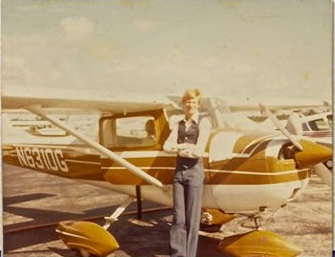
I grew up in small aircraft. My father was a private pilot and took me along often, showed me the landscape of Saskatchewan from 5,000 ft before I learned to ride a bicycle.
We always had copies of Flying magazine around at home, a publication with a deep and dedicated stable of editors and writers who knew how to tell a story and impart important lessons learned. “I Learned About Flying From That” remains a regular feature, and the Bax Seat column was like basking in the presence of a wise guru.
The history of early aviation is littered with accidents, leading to pilots who are a conservative lot; the classic explanation is “There are old pilots and bold pilots but there are no old, bold pilots.” The deliberate and systematic approaches to greater air safety evolved to the point where it has become the safest form of travel we have.
The lessons learned along the way were painful, acquired at the cost of lives. Professional pilots regard the safety aspects of aviation with the same gravity as gun safety, if not more so – the potential loss of life is greater, and will likely include their own. As I read Flying, visited airports, learned from my father, attended air shows and observed conversations, I soaked up this conservative mindset shaped by reality.
At 16 I began taking flying lessons and soloed. After a couple of weekends of practice flights, the next step was ground school.
And here I became very apprehensive, because I was hard of hearing. I knew very well how safety was a part of every aspect of flying, and I knew I wouldn’t be able to catch everything that was said. I didn’t know ASL at the time, and even if I did, finding an interpreter and paying for it would be a huge hurdle – there was no ADA law then.
Maybe I could’ve – literally – winged it. I’ve always done well on written tests and I’d already demonstrated I could pass flight tests. I knew if I were able to do commercial flight at all it would be in remote areas, the Alaskan bush or lake-hopping for tourists, places where radio-controlled airspace wasn’t a hurdle.
But faced with a choice between incomplete knowledge that could kill myself and others and doing what I most wanted to do in my life at that point, I knew safety was the most responsible choice.
In retrospect, working in such isolated locations would’ve restricted an already stunted personal social growth due to being hard of hearing. I ended up going to Gallaudet instead, learned ASL and became immersed in the Washington, DC area deaf community. My political outlook as a mature adult is firmly progressive. But there are fields of human endeavor where conservatism is the best option.
In flight, as in life, we are all in this together.